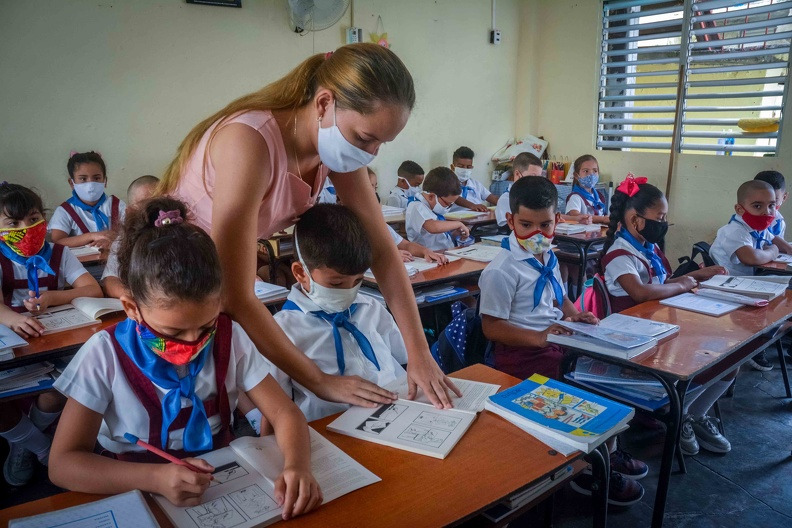
Image / Cubahora
By Roberto Morejón
The 60th anniversary of special education is remembered in Cuba at a time of accentuated complexities related to the pandemic caused by the new coronavirus.
This modality of instruction has great importance in the largest of the Antilles because it benefits all children and adolescents with disabilities and must be adapted to the country's circumstances.
This is the case of Covid-19, with its compulsory hygienic-sanitary provisions, to which more than 35,600 children enrolled in this Caribbean nation in the aforementioned educational model also had to adapt.
Of course, the rules for wearing masks, frequent hand disinfection and physical distancing are also strictly enforced for the more than 15,200 teachers and professors in charge of teaching.
If they are praised for their abnegation, professionalism and love, in the Covid-19 pandemic phase, their practice gains more admiration.
Many of the teachers had to go to their students' homes to explain the contents during the long confinement due to the increase of SARS-Cov-2 virus infections.
It is true that television classes were guaranteed, but those registered in special education require certain care and attention, only feasible in person.
In their favor, Cuban pedagogues dedicated to such a beautiful task have the support of a network of educational institutions, lines of attention, resources and technical support to carry out their mission.
They are assisted by more than 200 Guidance and Diagnostic Centers to identify and evaluate the specific needs of individuals.
Likewise, teachers in special education must work closely with families, all imbued with the sensitivity to ensure the success of such an indispensable task.
Schools with the mission of welcoming children and young people with complex situations in their instruction also work in correspondence with the characteristics of each territory.
This has been the case over the last 60 years, despite the U.S. blockade and now with Covid-19, when it has been essential to introduce and validate new information and communication technologies to facilitate the access of children and adolescents to various types of learning.

